Clooney and Pitt on reuniting as they get older
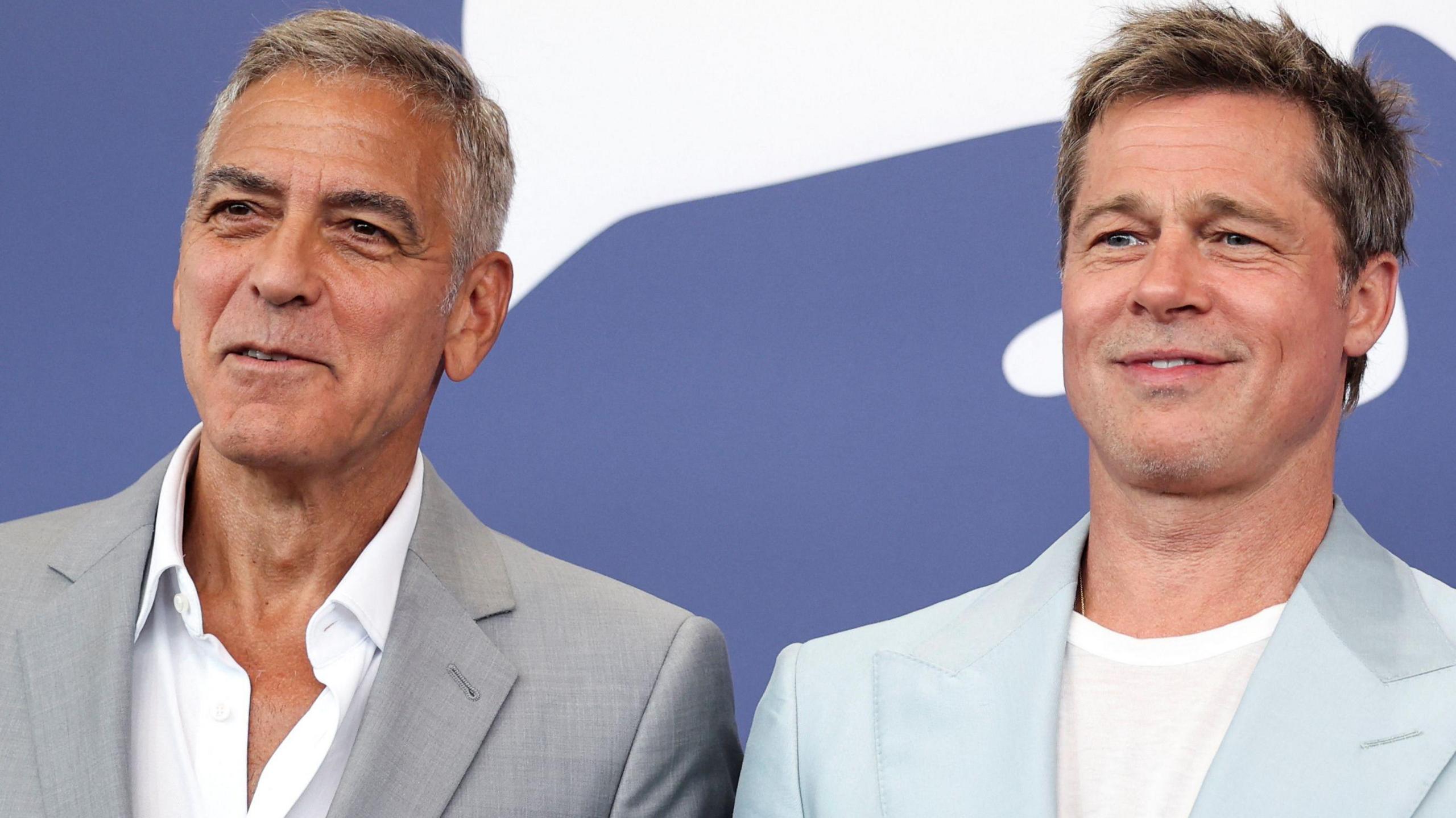
Clooney and Pitt previously appeared on screen together in Ocean's Eleven and Burn After Reading
- Published
When Brad Pitt and George Clooney grace the screen, it usually signals one thing - a suave, sophisticated and sexy Hollywood hit.
Wolfs is a classic crime thriller but it has one key, noticeable difference: it is a commentary on the landscape shift in traditional Hollywood masculinity.
Director Jon Watts tells the story of two rival fixers who are thrust together when they are booked for the same job to cover up a high-profile crime.
Through the prism of car chases, shoot-out scenes and general hijinx emblematic of the genre, the film is a reflection on ageing, identity and the softening of traditional male archetypes.
While Wolfs retains elements of crime cool, there’s a noticeable dismantling of toxic masculinity, showing how Hollywood heroes can age without becoming caricatures of their past selves.
The film premiered on Sunday as part of the Venice Film Festival, one of three key autumn events, along with Toronto and Telluride, where films are launched in the hope of going on to Oscars success.
Clooney helps fallen photographer at Venice Film Festival
Pitt and Clooney arrived on the Lido to a rapturous reception from fans, ahead of the film's premiere at the Palazzo del Cinema.
Following the screening, the film received a four-minute standing ovation from the audience.
Wolfs will be released in cinemas for a short period later this month before arriving on Apple TV+.
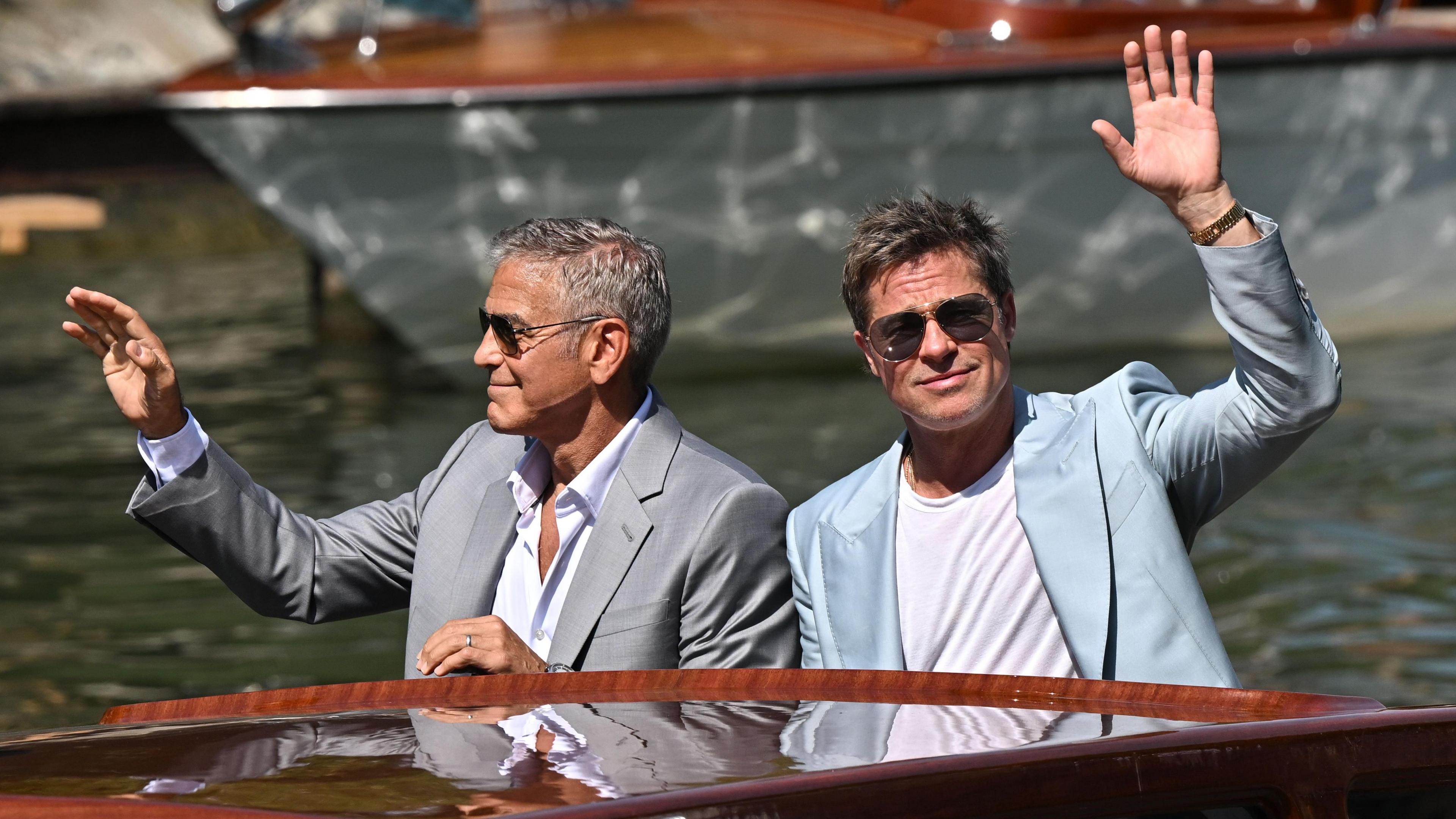
Crowds flanked the canal to catch a glimpse of Clooney and Pitt arriving to the Wolfs premiere by boat
During a press conference, Clooney admitted he was disappointed the film would not have a wider cinematic release.
“Yes, we wanted it to be released [in cinemas], we’ve had some bumps along the way, that happens,” Clooney told journalists.
The actor recalled something similar happening with a film he directed last year.
“You know, when I did Boys in the Boat, we did it for MGM and then it ended up being for Amazon and we didn’t get a foreign release at all, which was a surprise," he recalled.
"There are elements of this that we are figuring out... It is a bummer, of course it’s a bummer. On the other hand, a lot of people are going to see the film and we are getting a release in a few hundred theatres. But, yeah, it would have been nicer to have a wide release.”
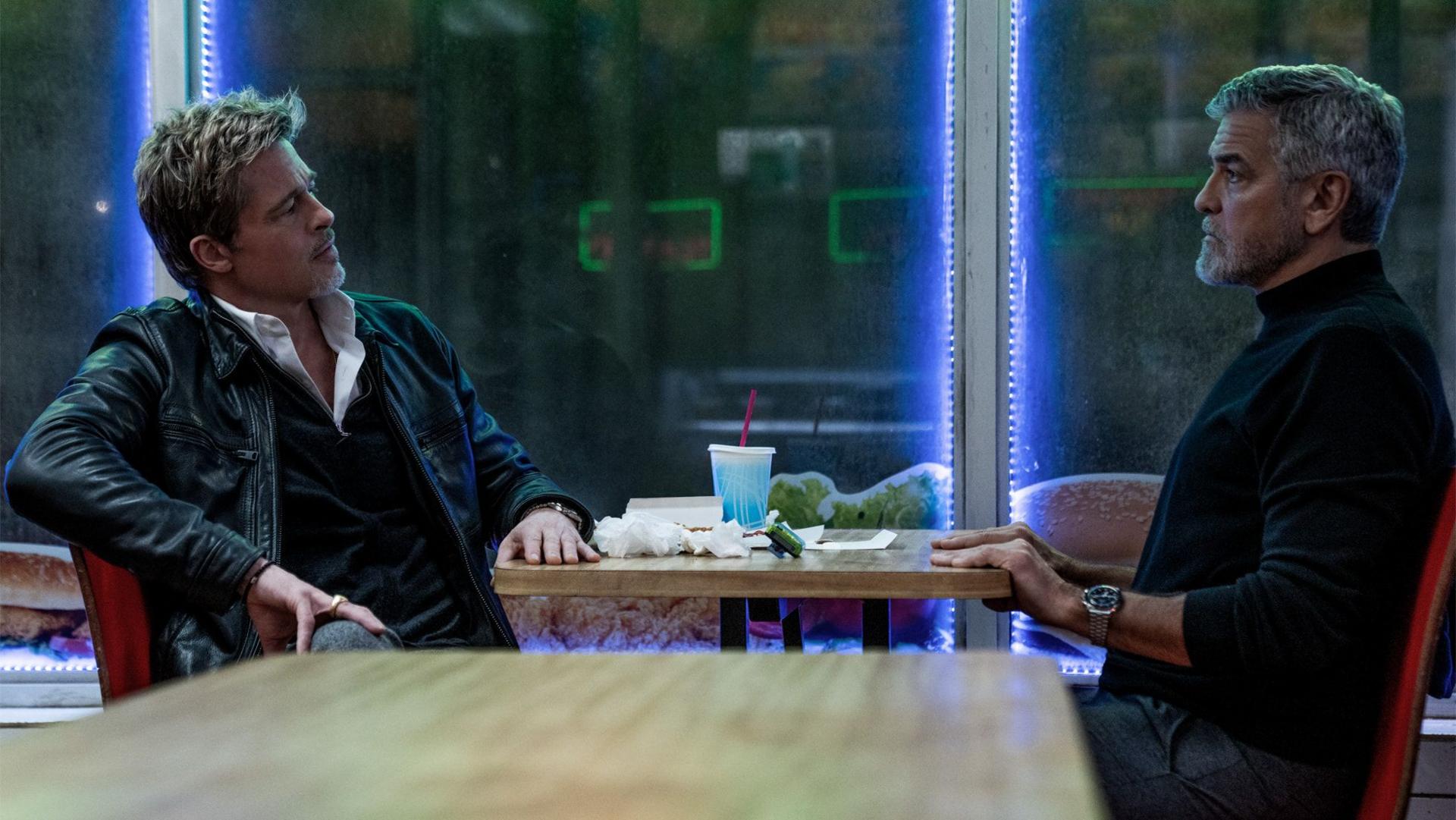
Clooney expressed disappointment that the film would not have a wider theatrical release
Clooney noted he and Pitt had given back of part of their salaries to make it happen, and said reports of how much they'd been paid for the film had been wildly over-estimated.
Clooney said their salaries were "millions and millions and millions of dollars less than what was reported" in the New York Times, which said they were paid more than $35m (£27m) each.
“I am only saying that because I think it’s bad for our industry if people think that is the standard bearer for salaries.”
Wolfs is a film that fundamentally could not have been made in the hazy days of 2001, during Clooney and Pitt’s first on-screen foray together, Ocean’s Eleven.
The two Oscar-winning actors, now both in their 60s, play slightly different male leads than audiences are used to.
The film is self-aware about the ages of its leads and the script reflects that.
The writing is a subtle challenge to industry mammoths, like the Bond franchise. Wolfs does not patronise its audience or force it to pretend its leads are the slick, young 20-somethings they once were: the writing includes jokes about back pain and deteriorating eyesight.
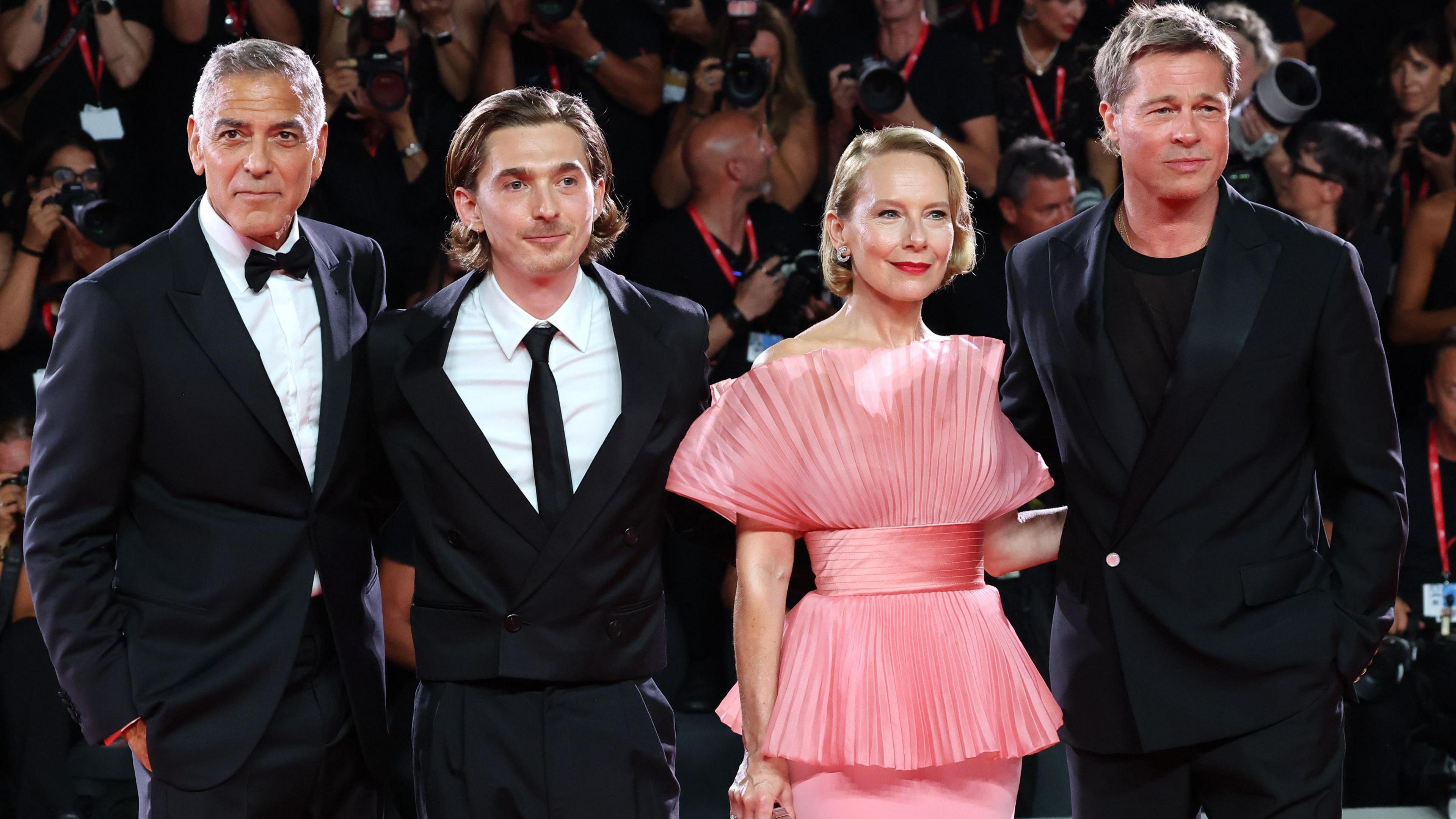
(Left to right) George Clooney, Austin Abrams, Amy Ryan and Brad Pitt at the Wolfs premiere in Venice
Asked about reuniting with Clooney, Pitt said: “We kind of figured there’s gotta be a good reason to get back in a film together, something we feel like we could build upon what we’ve done before.
"But also, I gotta say, as I get older, working with the people that I just really enjoy spending time with has really become important to me."
He continued: “We liked the idea and [director Watts] wrote this first draft and I read it and I said great, and George read it and he said great.
"It’s never happened where someone presents you with an idea and you get a first draft of the script and that’s what you end up shooting.”
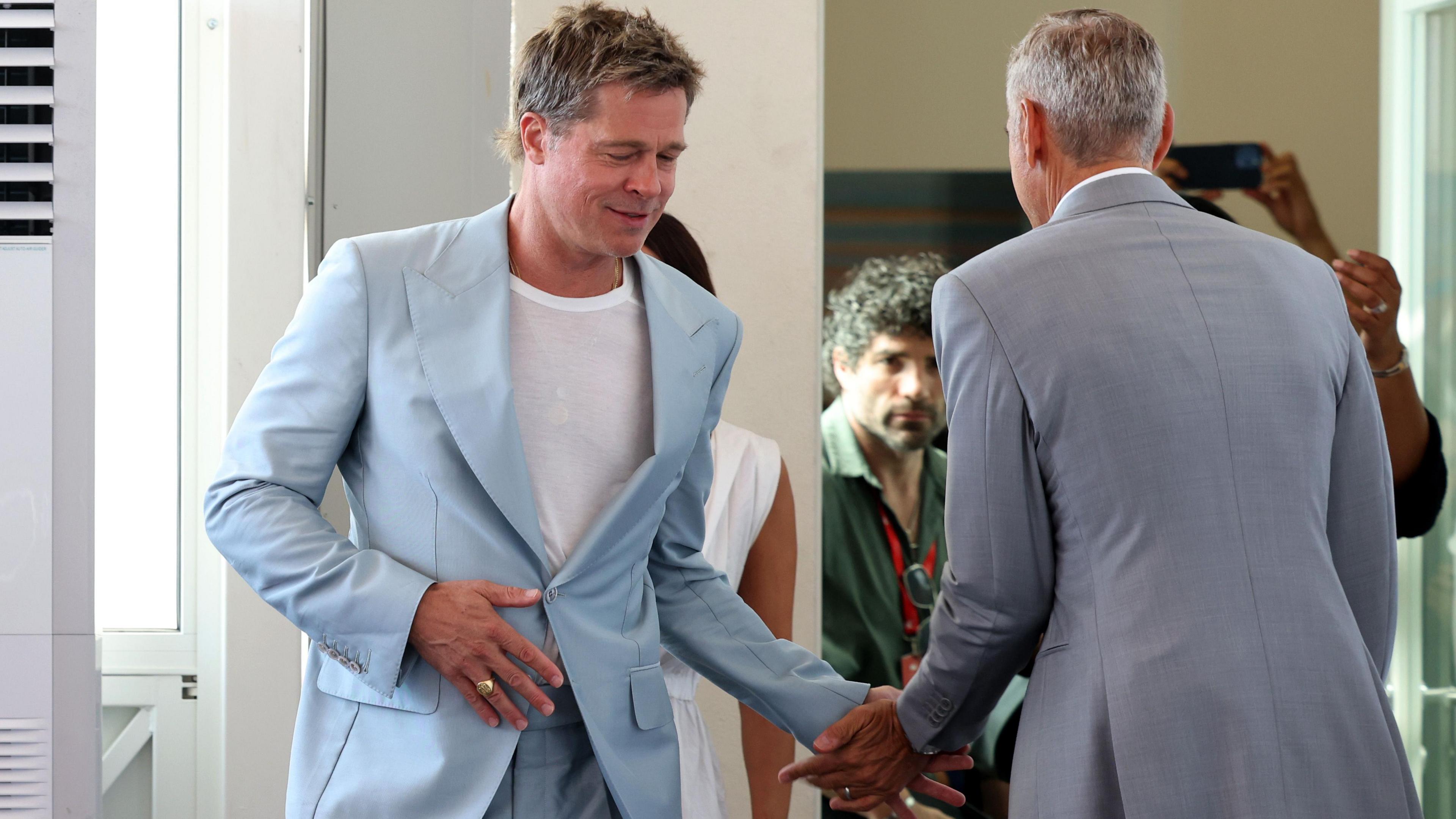
Clooney and Pitt team up in the film to deconstruct the "lone wolf" archetype
At the core of the film is the undeniable chemistry between Pitt and Clooney, which oscillates between camaraderie and competition.
Wolfs plays on the actors’ public personas, subtly weaving in allusions to their real-life reputations.
Pitt, who has faced personal controversies, and Clooney, who maintains an image of domestic bliss with wife Amal, seem almost to mirror their characters’ dynamic - both lone wolves navigating personal and professional challenges.
However, for some audiences, the casting of Pitt and Clooney together brings a jarring edge, given their divergent public narratives.
At the Venice Film Festival, Angelina Jolie - Pitt’s former partner - also debuted her latest project, further underscoring the complicated personal histories that have played out in the public eye.
The film doesn’t shy away from these tensions, hinting at how Hollywood's brightest stars are shaped by both their on-screen and off-screen lives.
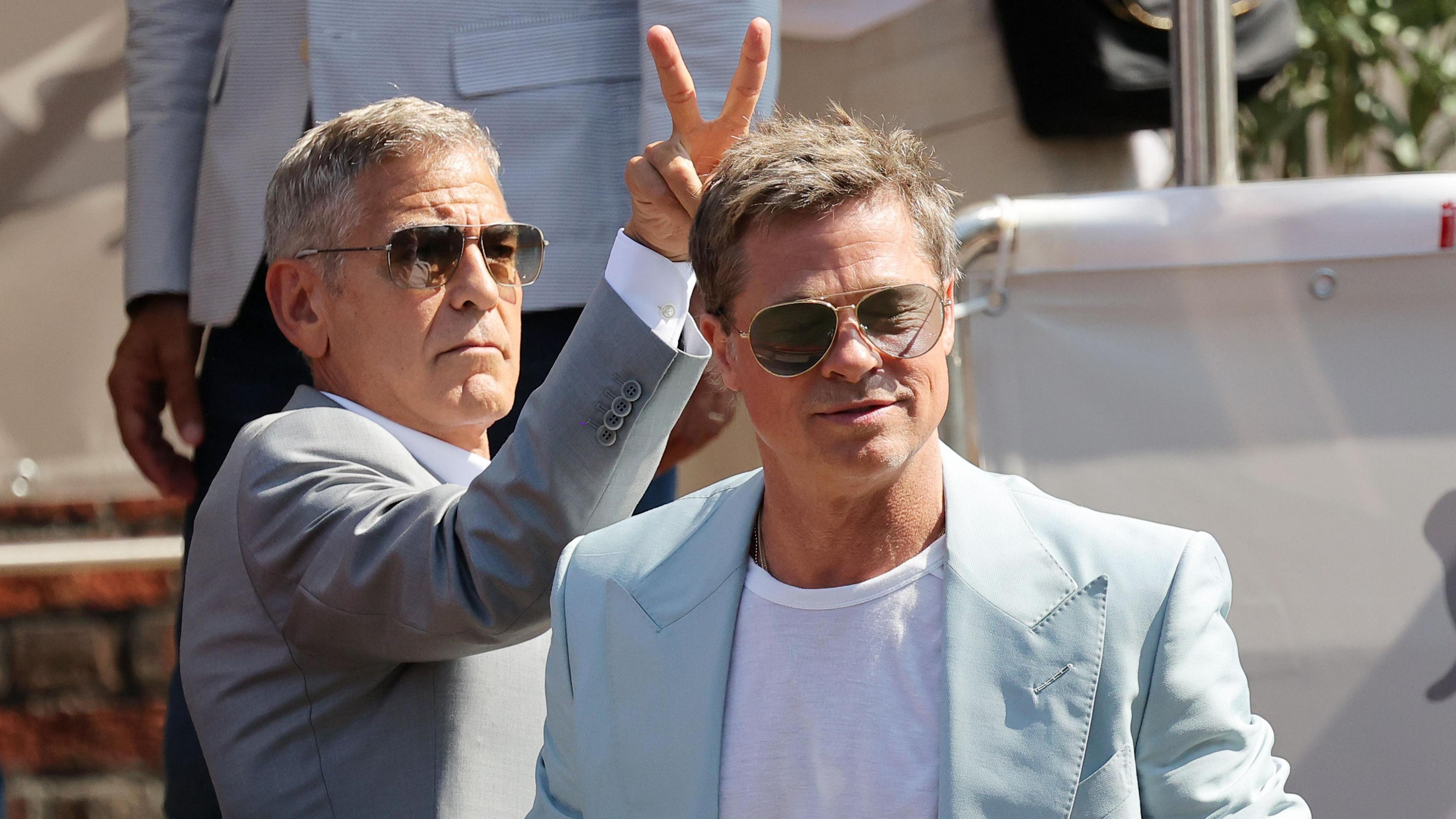
Clooney and Pitt have long been celebrated as "silver fox" Hollywood royalty
'Self-satisfied crime caper'
Wolfs received mixed reviews from critics following its premiere.
In a three-star review, the Guardian's Xan Brooks said:, external "The film itself never amounts to much more than a silly, self-satisfied crime caper, but the headline stars look as though they are enjoying themselves and their sense of fun, by and large, is infectious."
The Telegraph's Robbie Collin was far less complimentary,, external saying Pitt and Clooney "possess all the charisma of a pair of Sports Direct mugs in this Diplodocus-footed crime comedy" in a one-star review.
There wasn't much more enthusiasm from The Times's Kevin Maher,, external who awarded the film just two stars and called it "a painfully derivative buddy movie".
Deadline's Damon Wise was more positive,, external writing: "As a mop-up procedural, Wolfs is often very funny and most ingenious.
"The camaraderie is palpable and genuine, but the repartee is forced in comparison to the gentle physical comedy that both are so good at."
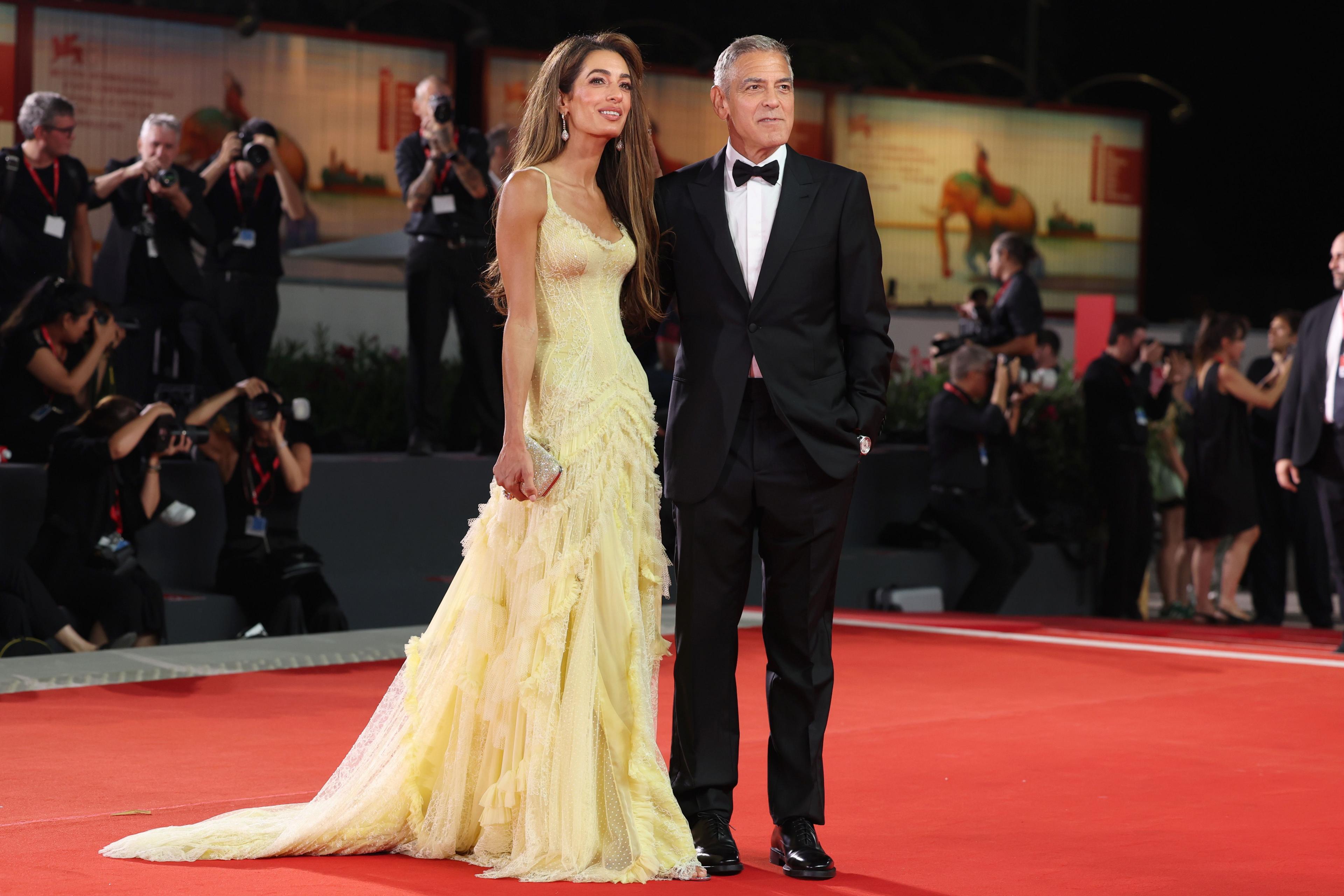
Human-rights lawyer Amal Clooney supports husband George at the Wolfs premiere in Venice
A feminist lens
Clooney, long celebrated as the quintessential "silver fox", exudes the same charm he’s maintained for decades in the film.
But Wolfs pushes further, addressing the reality of ageing for both male and female actors.
The film makes a subtle point about the lack of female "silver fox" equivalents in Hollywood - highlighting how the industry has long reserved roles for older men, while female actors often see their opportunities dwindle.
The age-positive writing of Wolfs may come as a relief to some female viewers, who have long felt fatigued by Hollywood’s seeming inability to apply the same ageism to male actors as they do to female actors.
Wolfs’ casting is age-appropriate and progressive – the female leads, Amy Ryan and Poorna Jagannathan, are both in their fifties.
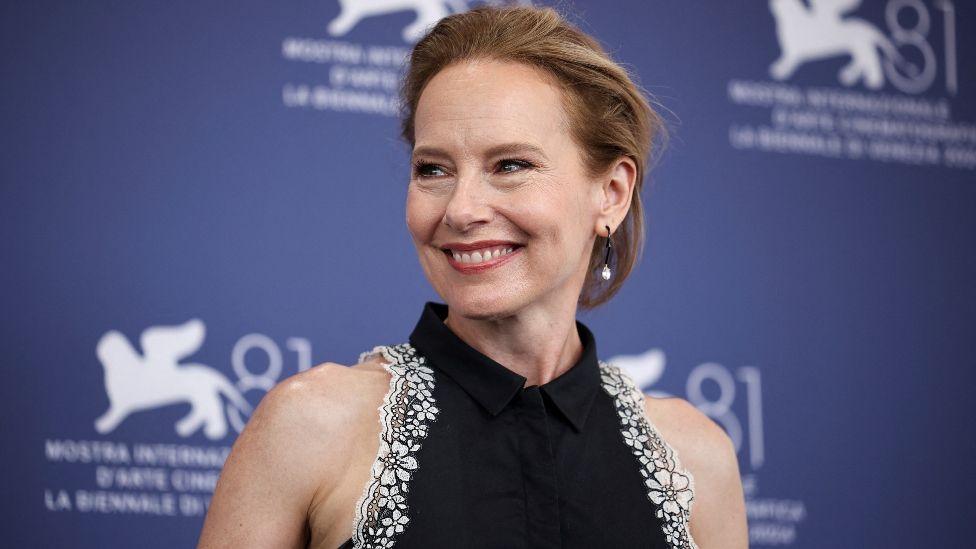
Amy Ryan plays one of the film's messy and complicated female characters
Ryan's character is presented through a lens that avoids the male gaze. Her character isn’t hyper-polished; instead, she’s allowed to look flustered and raw, a rarity in a genre dominated by smooth, invincible heroines.
The female characters portrayed by both Ryan and Jagannathan’s characters are complex, messy and a little morally-grey. That allows the female characters to stand eye-to-eye with the male protagonists.
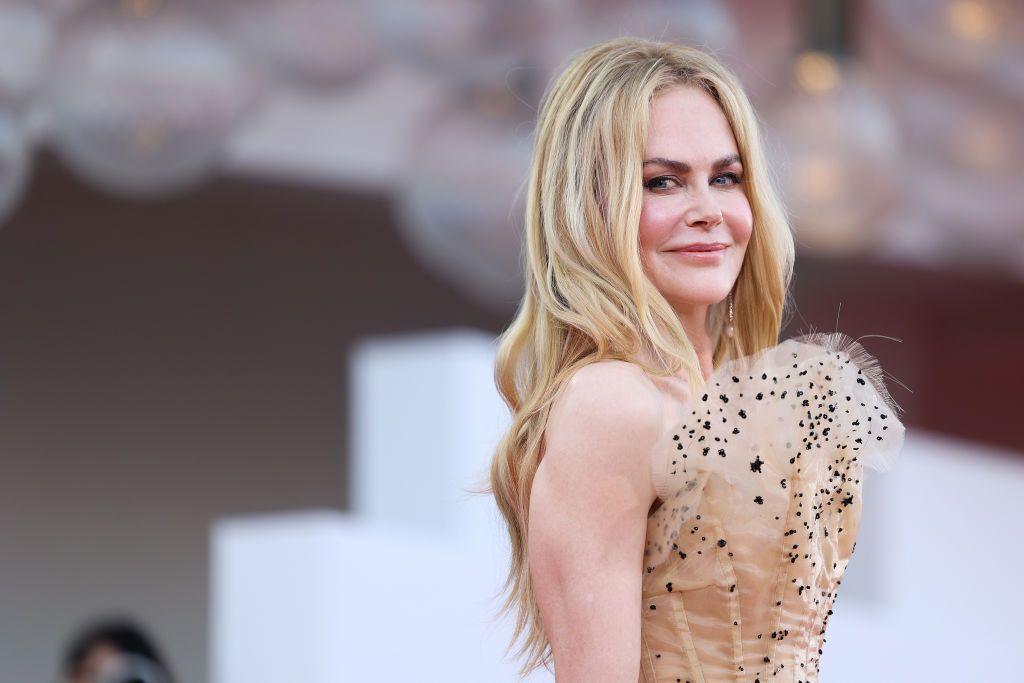
Nicole Kidman has been praised for brave new film Babygirl, premiering at Venice Film Festival
Female characters are not just age-positive, but subtly sex-positive too - Ryan is an older woman exploring her own sexuality, in a way which is messy and sometimes embarrassing.
This theme has surfaced several times throughout the Venice Film Festival this year: in Halina Reijn’s Babygirl, which premiered here last week, 57-year-old Nicole Kidman experiences a subversive second adolescence, through a sexual renaissance with a younger Harris Dickinson.
As the on-screen presence of older women boldly exploring their sexuality percolates through the festival, audiences in Venice were left wondering whether this signals a shift in Hollywood for feminism.